Turnover on the SAP labour market in Poland in 2025

For years, employers have been making efforts to counteract increasing employee turnover. However, in the context of global trends, this is an uneven fight. According to Gallup data, globally, 52% of employees plan to change jobs, while in Europe it stands at 31%.
In the IT industry, the past year was record-breaking – nearly 35% of specialists changed jobs. This high rate was influenced by, am
ong other things, the popularity of contracts that naturally expire (most often after 6, 12, or 18 months), as well as layoffs, which 18% of companies employing IT specialists admit to.
Against this background, the SAP job market stands out due to its stability, especially this year. Just under 23% of respondents changed jobs, which is a decrease of 5 percentage points compared to the previous year. Additionally, the contract market accounts for ¼ of this result. The wave of layoffs that affected the IT industry largely bypassed the SAP sector.
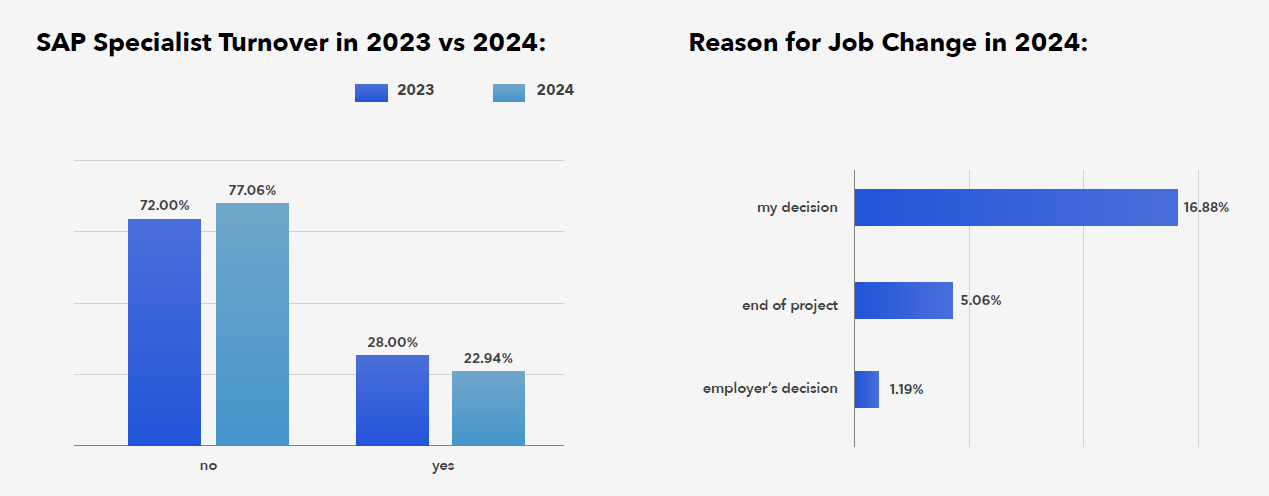
Analyses of the entire job market show that turnover is highest among young people – as many as 50% of them report a willingness to change employers within a year. Older employees more often have difficulty finding new employment. In SAP, these differences are less visible – both in terms of age and experience.
Last year, 30 and 40-year-olds changed jobs most often, which is due to the sheer number of them in the market. However, if we look at the percentage of people changing jobs, the youngest (28%) and the oldest (26%) showed the greatest tendency to look for new pastures. In terms of experience, the group with the shortest tenure – up to 4 years (28%) – stood out. In subsequent bands, the differences were minimal.
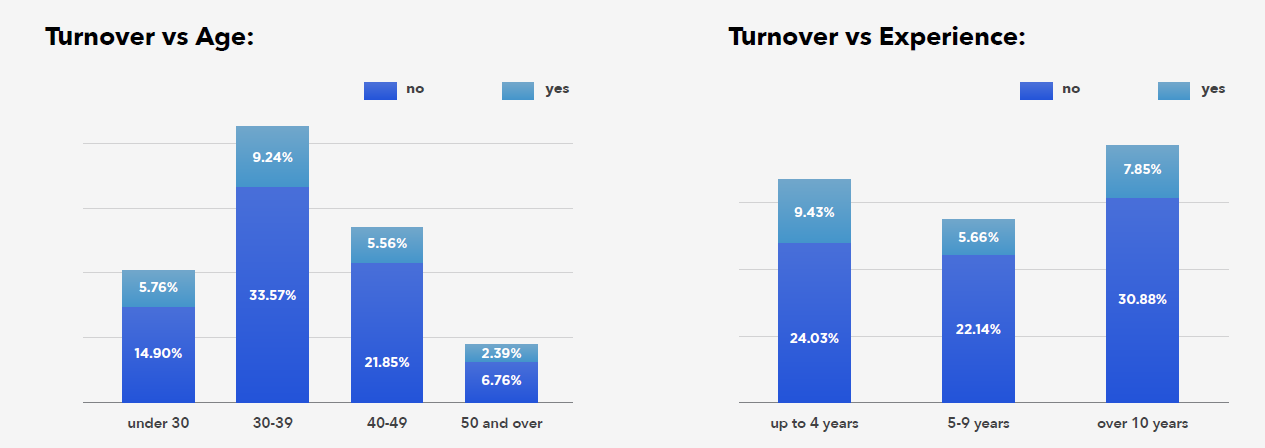
Shortage and Caution
So, what lies ahead of us? A shortage of SAP specialists is reported by 47% of companies, but only half of them (22% of all respondents) plan to expand their teams. This may lead to current employees being overworked and an increased risk of turnover.
Similar to last year, about 40% of managers do not yet know whether they will be hiring or laying off staff. This persistent uncertainty makes recruitment planning difficult. Solutions include flexible employment models and investments in the development of internal talent.
I am observing an increase in demand for SAP Consultants with 5–8 years of experience. This group of specialists focuses on professional development, acquiring certifications, and working with new technologies. They are the ones most willing to engage in implementation, migration, and transformation projects, especially with end clients.
Their preferred working model is B2B, and the key decision-making factor for them is the possibility of remote work – team meetings once a month or quarter are acceptable, while the requirement of hybrid work is a significant recruitment barrier.
An additional challenge for companies is the growing financial expectations of consultants, which often exceed the budgets allocated for these positions. Therefore, organizations should consider a more flexible approach to forms of collaboration and a work model that more effectively attracts and retains the best experts in the SAP market.
Julia Mitiakova-Wójcik
Business Consultant / IT Recruitment 180 at Awareson
Team expansion is mainly planned by companies from the financial, energy, retail, and logistics sectors. The greatest uncertainty concerns the construction industry, and redundancies are primarily being announced by automotive companies. The greatest demand is for experts, but unlike the general trend in IT, companies using SAP also see the need to hire junior staff.
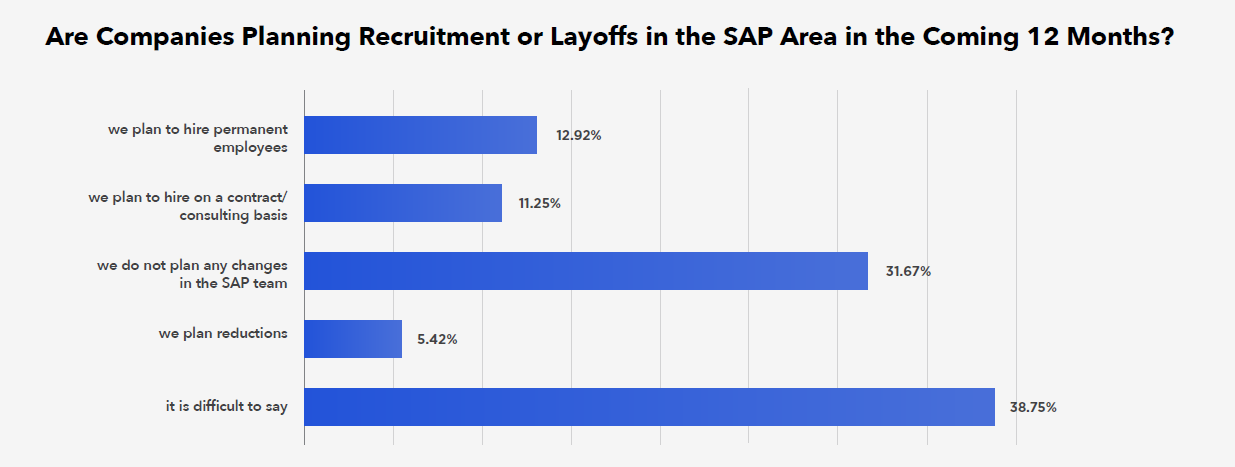
The Polish SAP market is maturing, and companies are increasingly focusing on long-term development and system optimization, rather than just implementation. The high demand for SAP developers – both for permanent positions (44.83%) and contracts (51.85%) – shows that organizations are adapting systems to their specific needs, instead of relying solely on standard solutions.
The three key groups of SAP specialists – developers, functional consultants, and technical consultants – remain the most sought after, but the importance of analytical and administrative roles is also growing.
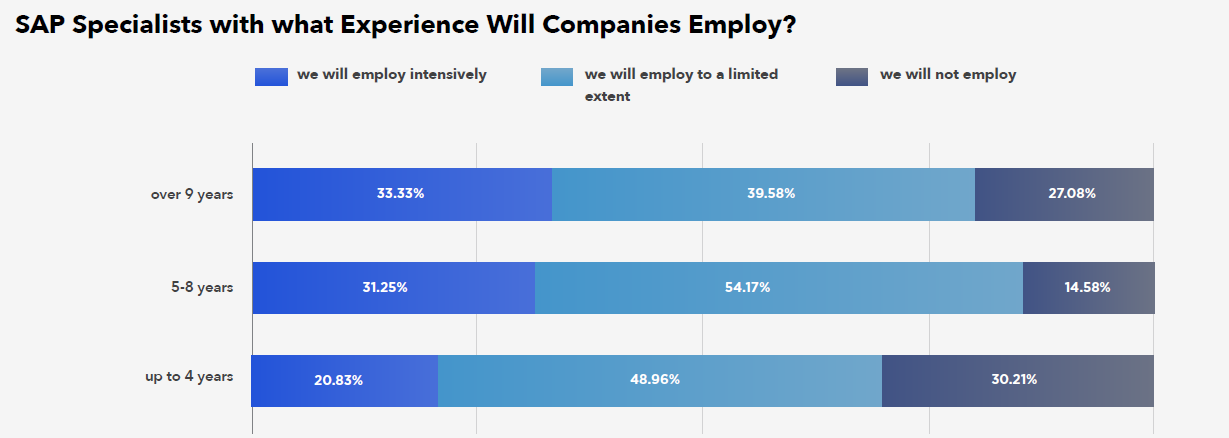
The increased number of recruitments in the area of security shows that companies are aware of external threats but are also responding to introduced regulations such as NIS2 and DORA. Cloud work, the storage of sensitive data, and remote access to systems are creating new challenges in terms of control and cybersecurity.
Organizations are preparing for a comprehensive SAP transformation, focusing not only on implementation but also on the long-term efficiency and integration of the system with modern IT solutions.
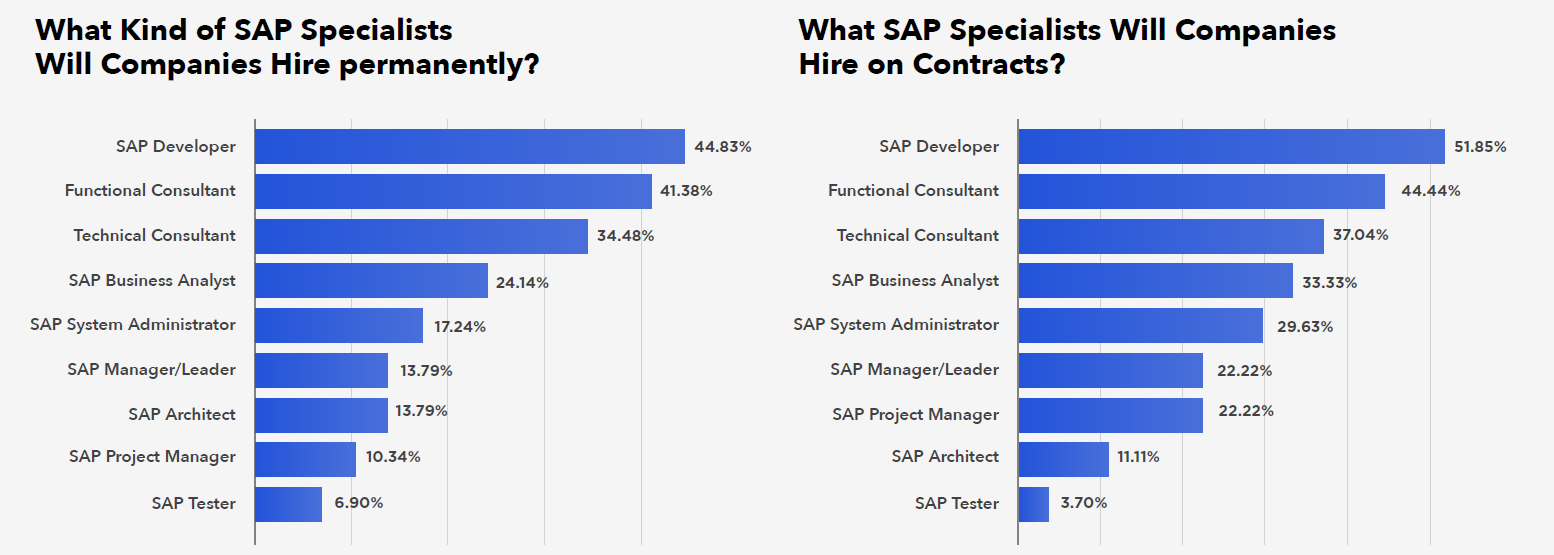
Hiring experienced SAP experts will not be easy. Candidates are increasingly less likely to decide to change jobs – in 2025, only 22% of respondents report such an intention, which is the lowest result in the three years surveyed by Awareson.
This is the result of employers’ efforts, since they have been trying to limit turnover for years. SAP specialists stay in companies that offer them satisfactory remuneration, development opportunities, and a comfortable working atmosphere.
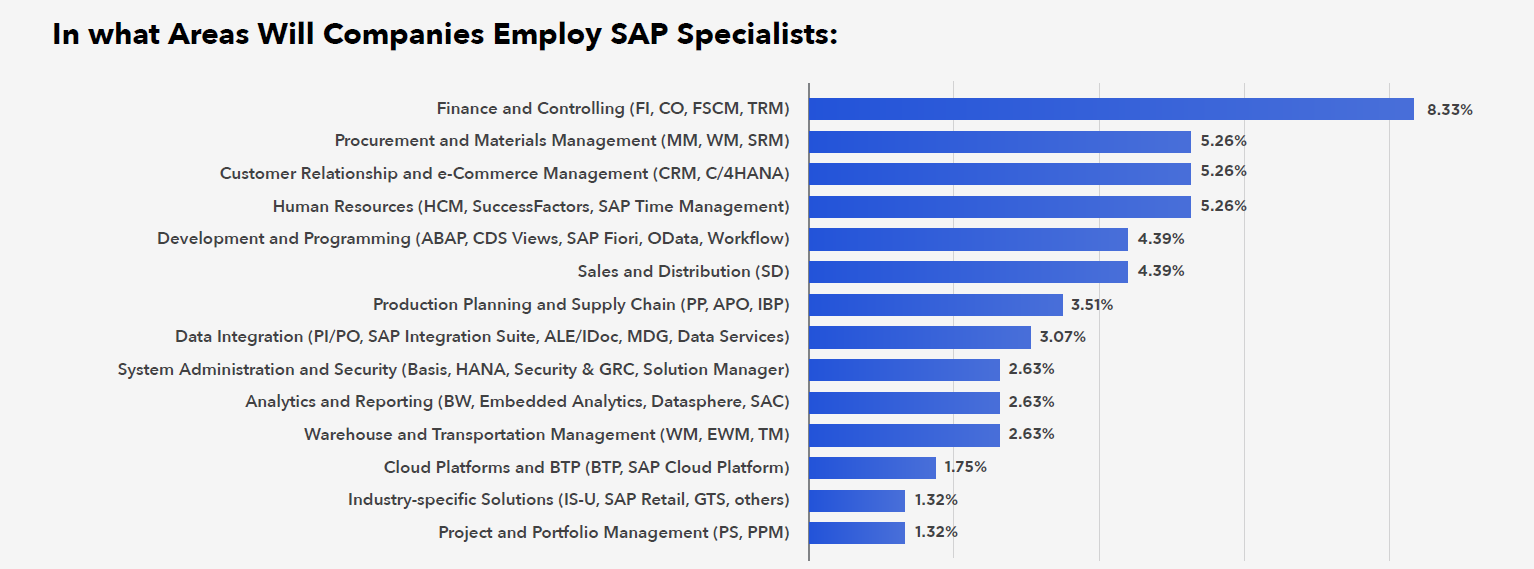
Importantly, for the first time in IT market research, including SAP, team atmosphere turned out to be more important than earnings and development. This is evidence of the effectiveness of well-thought-out employment and team management strategies.
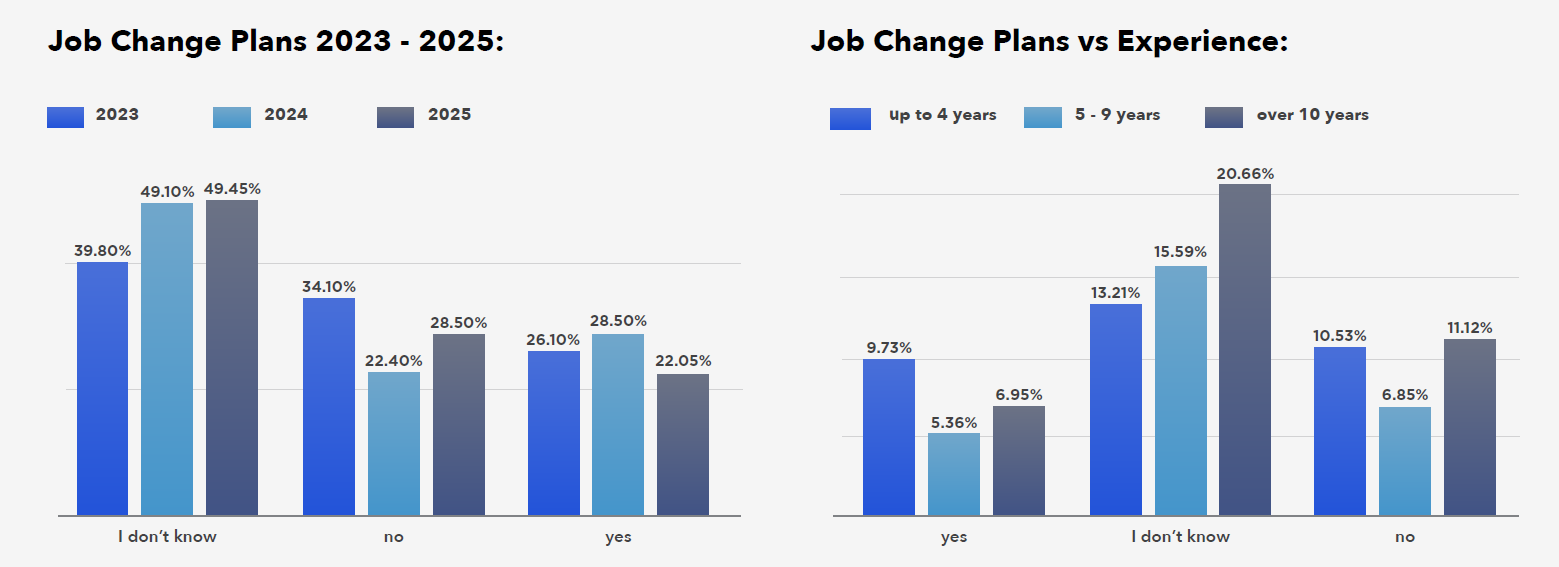
Salary will be a significant factor when it comes to changing employer in 2025 due to rising rates and insufficient financial satisfaction. This is a challenge for companies employing specialists on a permanent basis – candidates primarily driven by finances more often consider further changes, which increases turnover.
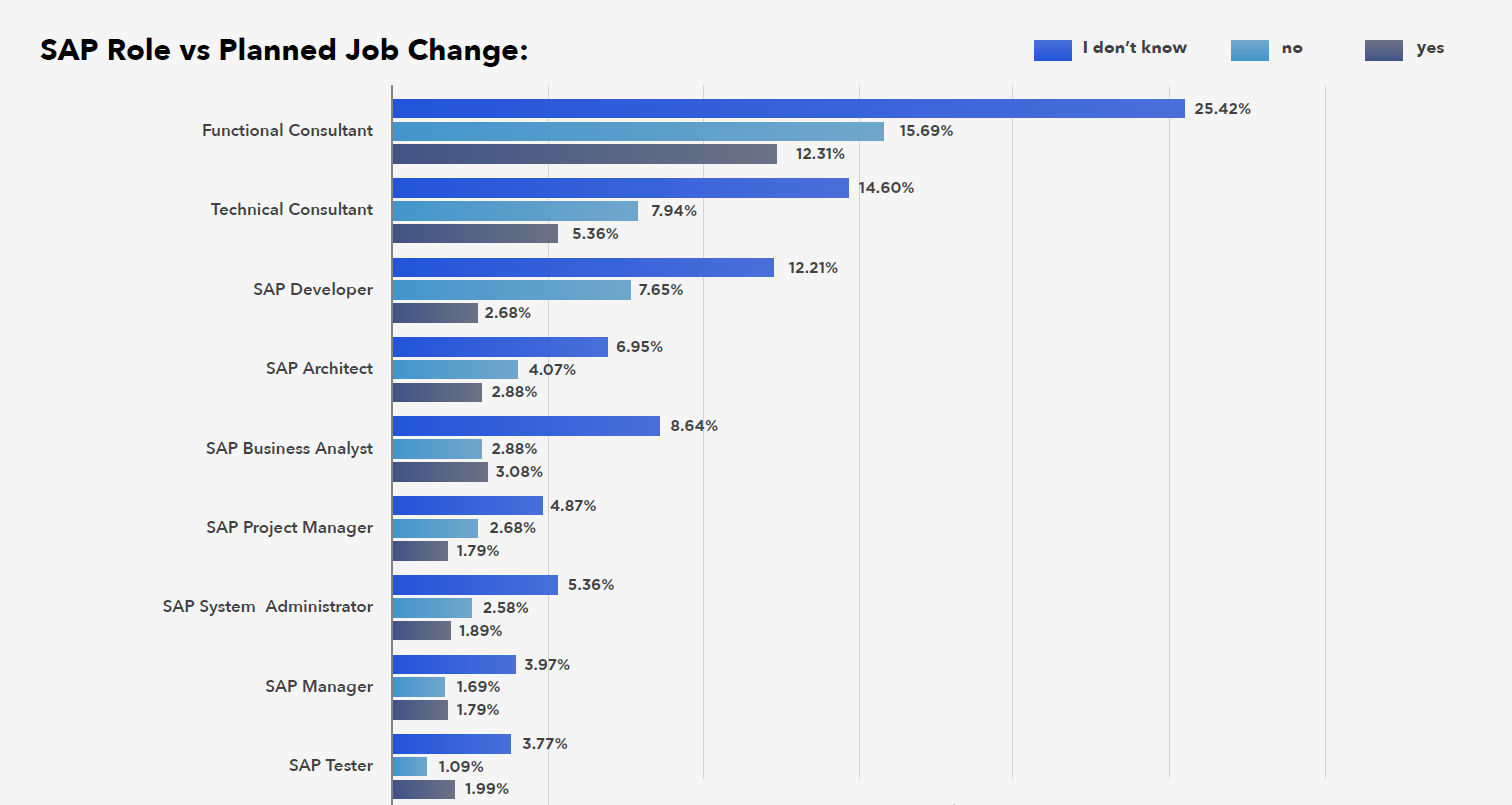
Junior staff are the most willing to change, while senior specialists and experts are waiting for proposals tailored to their expectations. This is a group that does not apply for new jobs actively but is open to individual offers. Effectively reaching them requires relationships and referrals, not standard recruitment.

Studying the motivations of candidates is crucial, especially in permanent recruitment. Companies that offer development and stability in addition to competitive salaries have a better chance of retaining the best SAP talents for longer.
Want to know more? Download the full SAP job market report, 2025.
DOWNLOAD REPORT



